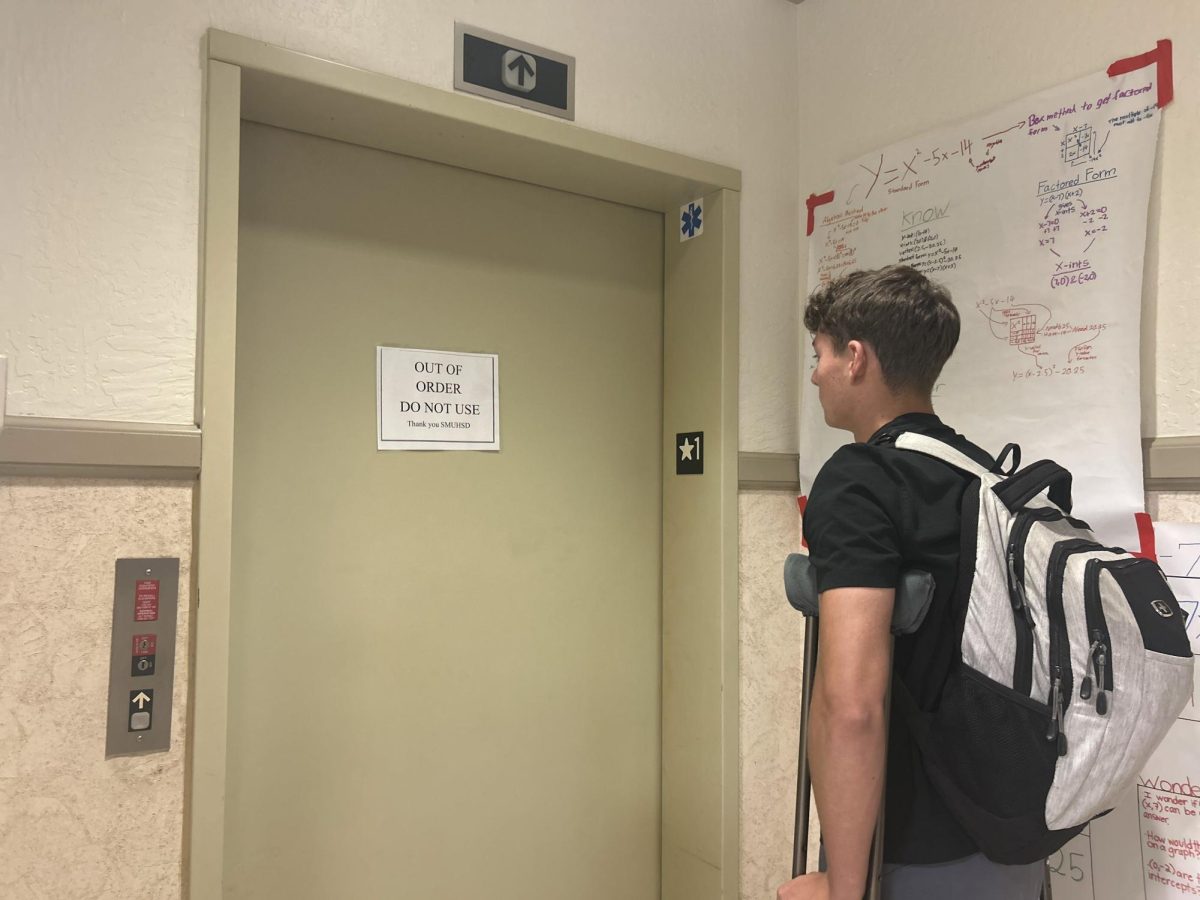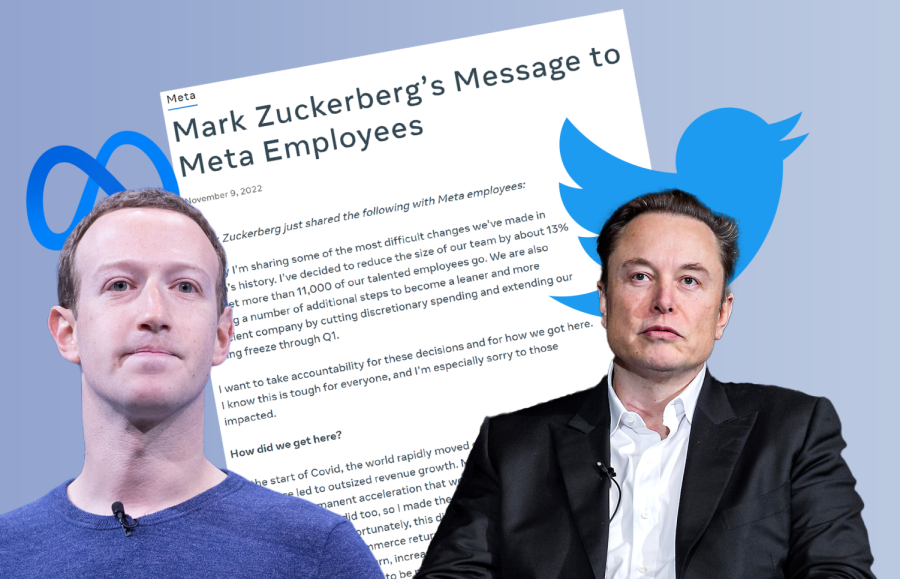Bay Area tech layoffs: the end of a boom
Meta and Twitter have both laid off thousands of employees. (Photos courtesy of Wikimedia Commons)
January 7, 2023
For the last two decades, the tech industry has enjoyed steady growth, offering a reliable job market for many Bay Area employees. However, recent waves of layoffs in the technology sector have raised questions about future growth in the technology industry and threatened Bay Area families.
In late 2022, many tech giants embarked on massive internal restructuring campaigns: Meta laid off 13% of its workforce (11,000) in November, and Twitter laid off 50% of its workforce (3,700) after Elon Musk’s acquisition of the company this October. Amazon, too, is in the process of laying off employees, announcing in November that they plan to lay off 10,000 employees.
The tech industry is hurting for a number of reasons: less venture capital money due to higher interest rates, reduced spending on digital advertising and over-hiring during the pandemic in anticipation of continuesd growth in the tech sector. In a last-ditch effort to resurrect their profitability, major tech companies laid off massive droves of employees.
“[The layoffs] were kind of necessary,” said an anonymous Twitter employee and Burlingame parent, whose name is withheld for privacy purposes. “I’ve been in the industry for a long time, and I think things had reached a point where these big companies like Twitter, Facebook or Google were becoming too lax in terms of having employees work in proportion to what they’re paid, so there was bound to be a market correction at some point.”
Founder and CEO Mark Zuckerberg announced layoffs for social media giant Meta in an online public statement. In the message, Zuckerburg took personal responsibility, citing that he didn’t foresee a “macroeconomic downturn, increased competition and ads signal loss.” Zuckerberg then stated that the company would focus its resources on a “smaller number of high priority growth areas,” such as the Metaverse.
In a somewhat unique situation, Twitter began restructuring when eccentric billionaire Elon Musk bought the company for $44 billion in October. With Musk at the helm, the company aims to turn profitable for the first time in two years by adding new features such as “Twitter Blue,” forcing users to pay for account verification and a blue checkmark. Most noticeably, though, Twitter’s path to profitability included laying off half of its employees across all of its departments.
Although both the Twitter employee and Burlingame parent said the layoffs weren’t unexpected, the approach was surprising.
“I was expecting him to start with the non-technical functions first, like sales and marketing, and then come to engineering, but he did it across the board,” the Twitter employee said. “Even engineering teams were impacted. But I think in engineering, he didn’t lay off entire teams because you need some engineers to continue the work in the teams.”
After the takeover, Musk’s leadership changes dramatically altered the culture at Twitter, shocking many of the employees.
“The changes have been night and day,” the Twitter employee said. “In my experience, [Twitter] was one of the most caring companies that really values its employees — there was a lot of trust. Now things have changed drastically… It’s like a startup.”
With Twitter, and other companies letting go of so many employees, it creates a more crowded job market with many employees seeking new jobs.
“A lot of recruiters have been contacting me, but I think that could be because I have a lot of experience. I don’t know for junior people,” the Twitter employee said. “Venture capital is still flowing. So there are startups that are still hiring, so I feel like the people who’ve been laid off [will] find some work in some company. It’s just when [layoffs are] so sudden, it takes time.”
Despite skepticism from many about the future of Twitter, the Twitter employee still feels there is a chance of the company succeeding.
“I don’t quite believe that [Twitter will] just go away,” the Twitter employee said. “Anyone with that kind of drive, can hire new people and make it successful… so there’s a chance that [Twitter] will be even more successful than it was. I just think that the way he’s behaving — it’s very erratic and not very principled.”










































